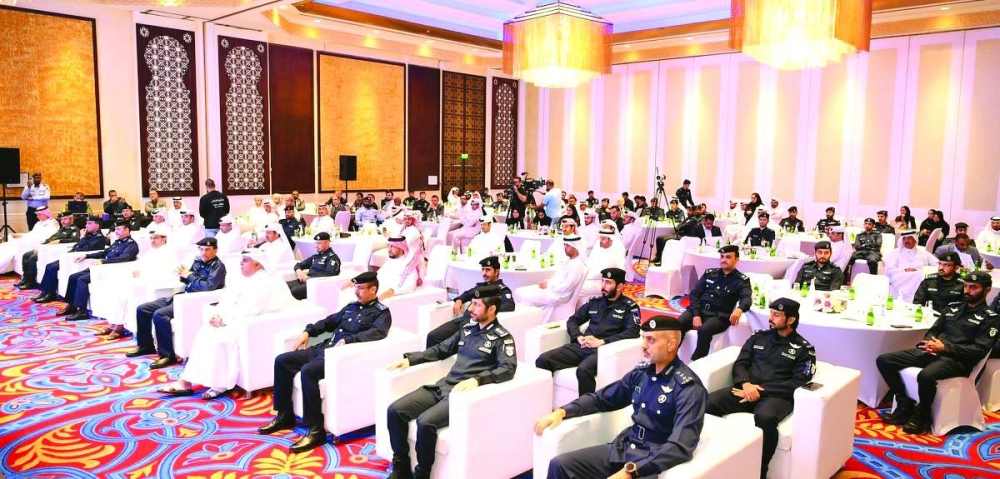The Ministry of Interior (MoI) held a workshop Wednesday to study and explore remedial methods for the prevalence of e-scooters with the participation of representatives of traffic agencies in the GCC states, alongside a host of relevant entities in the country.
The event was held in implementation of the 39th meeting of the GCC interior ministers based on the recommendations of the committee of General Directors of Traffic.
In a statement, the MoI pointed out that the workshop intended to boost co-operation and joint action among Gulf traffic agencies, along with efforts to optimise traffic safety levels and reduce accidents.
The workshop's recommendations stressed the importance of determining a certain speed limit for e-scooters in certain places, along with the adherence to safety measures (such as wearing a helmet, installing reflectors, and checking the wheels, brakes and chassis before use), the statement said.
It pointed out that using e-scooters should be essentially prohibited in pedestrian-designated places, banning users from accompanying a person or carrying belongings that could potentially result in the e-scooter or driver losing their balance, in addition to banning the use of e-scooter in groups, or in a close distance, especially near pedestrian places and assembly points.
The MoI stressed on directing all companies operating e-scooters to essentially obtain valid insurance documents from accredited companies to insure users against potential damages.
The acting director of the Traffic Awareness Department, Brig Gen. Jassim Nasser al-Humaidi, said the MoI, represented by the General Directorate of Traffic, has been collaborating with the competent authorities in Qatar to discuss the prevalence of e-scooters to attain the best and appropriate measures that would legalise their use.
Al-Humaidi revealed the most important factors that cause traffic accidents and endganger individuals' lives, in addition to causing traffic congestion and gridlock.
Al-Humaidi outlined that regulating the use of e-scooters, setting conditions and legislations, as well as adhering to these regulations and reducing gridlock of vehicles are extremely essential that will never be achieved unless deep and practical discussions are held.
The workshop featured a myriad of useful work papers presented by the General Directorate of Traffic, Ministry of Transport, Ministry of Commerce and Industry, Public Works Authority (Ashghal), National Traffic Safety Committee, Qatar Transportation and Traffic Safety Center at Qatar University (QTTSC), and the Qatar General Organisation for Standards and Metrology.
During the workshop, Assistant Director of the Hamad Injury Prevention Programme at the Hamad Trauma Centre, Dr Aisha Obaid, delivered a presentation that included an overview about e-scooters, their use facts, revealing the statistics associated with the traumas the centre has treated due to e-scooter accidents, along with the critical tips and recommendations to prevent traumas in Qatar.
The Ministry of Transport presented a paper on the measures it has taken to allow the operation of e-scooters as a pilot phase in collaboration and co-ordination with relevant entities, in addition to the binding requirements and measures for operators, identifying the places where e-scooters are allowed to be used and compelling the companies to observe the well-known safety requirements.
Ashghal presented a working paper that included e-scooter merits and demerits, safe use tips, as well as the requirements determined by the competent authorities and reviewing the experiences of some countries in using e-scooter, in terms of legal legislations and safety requirements.
The paper of the General Directorate of Traffic included a combination of measures and proposals that would bolster traffic safety and the safety of e-scooter users, with the paper of the National Traffic Safety Committee addressing the essential requirements and regulations to ensure users' safety and its role in this framework.
The MOCI introduced a paper that reviewed the types of e-scooters and their technical specifications, with the paper of QTTSC touching upon the legislation relevant to e-scooters in some countries.



